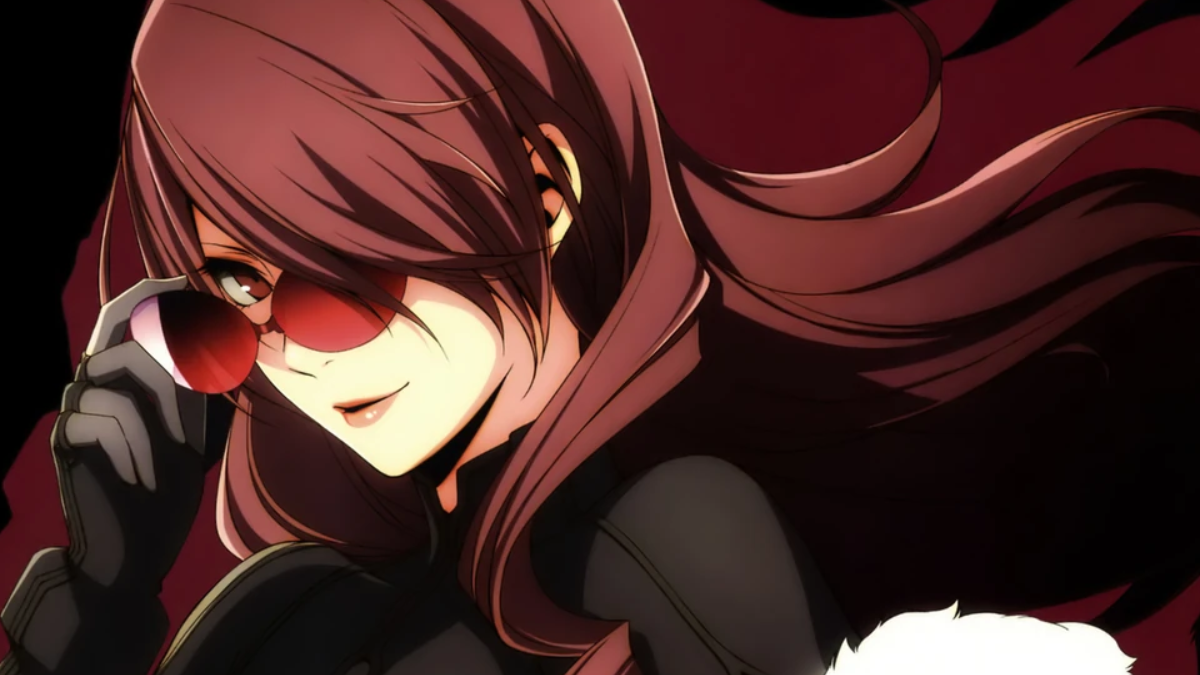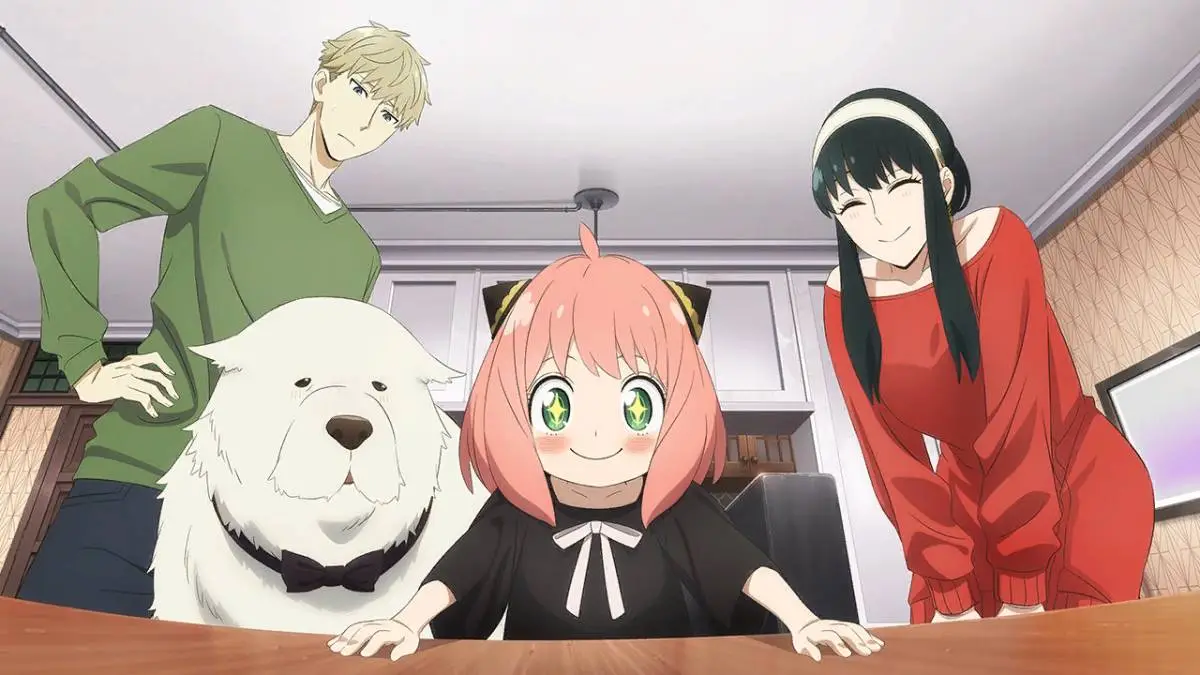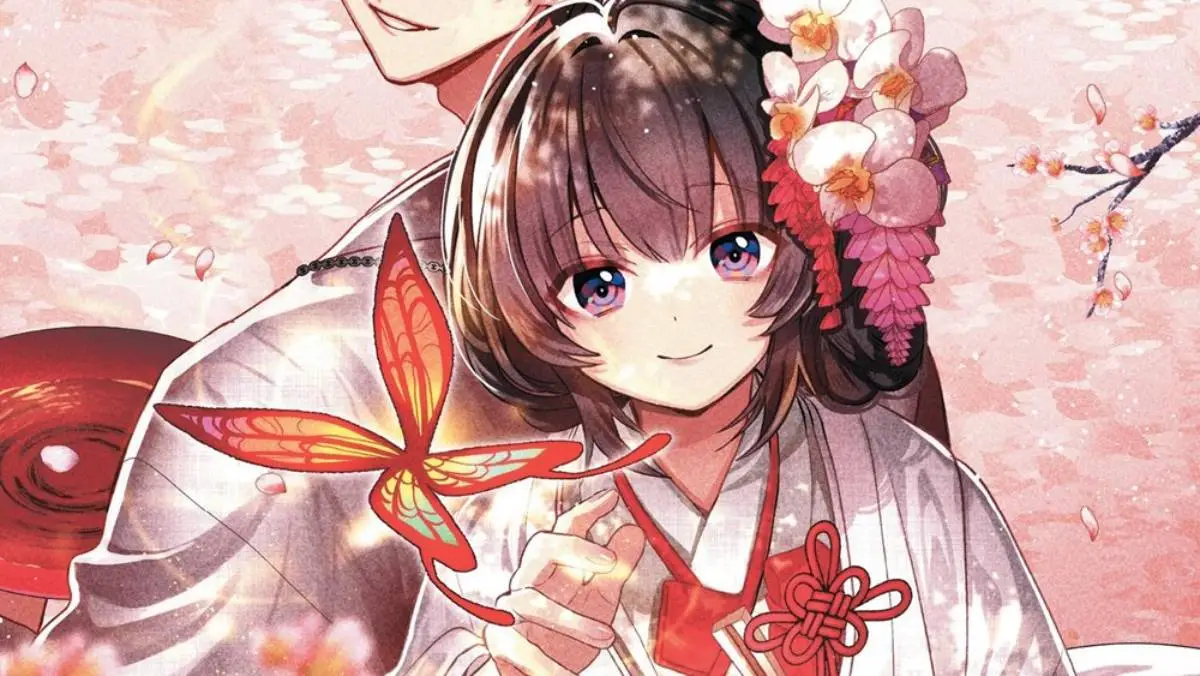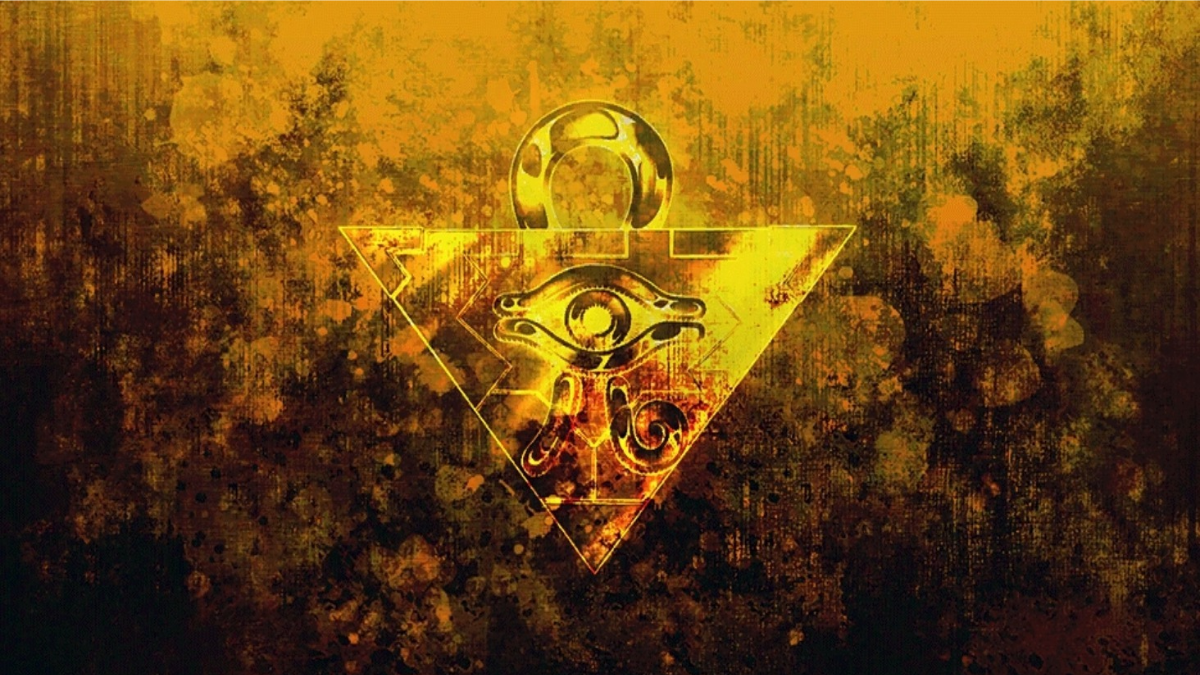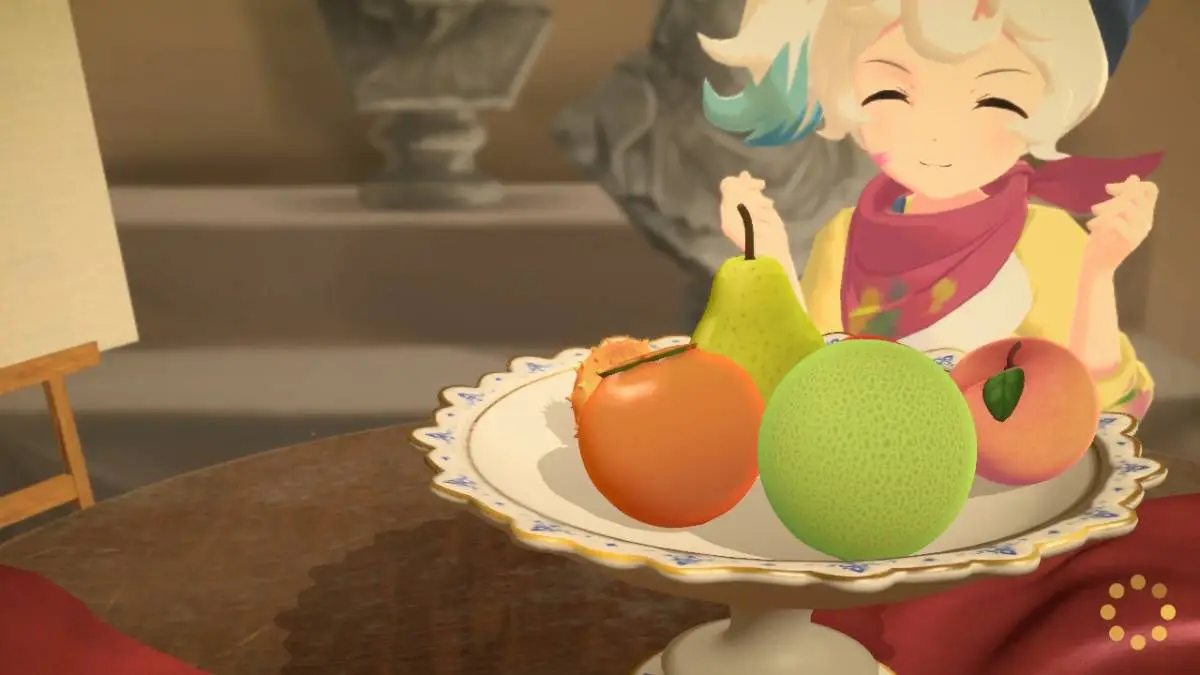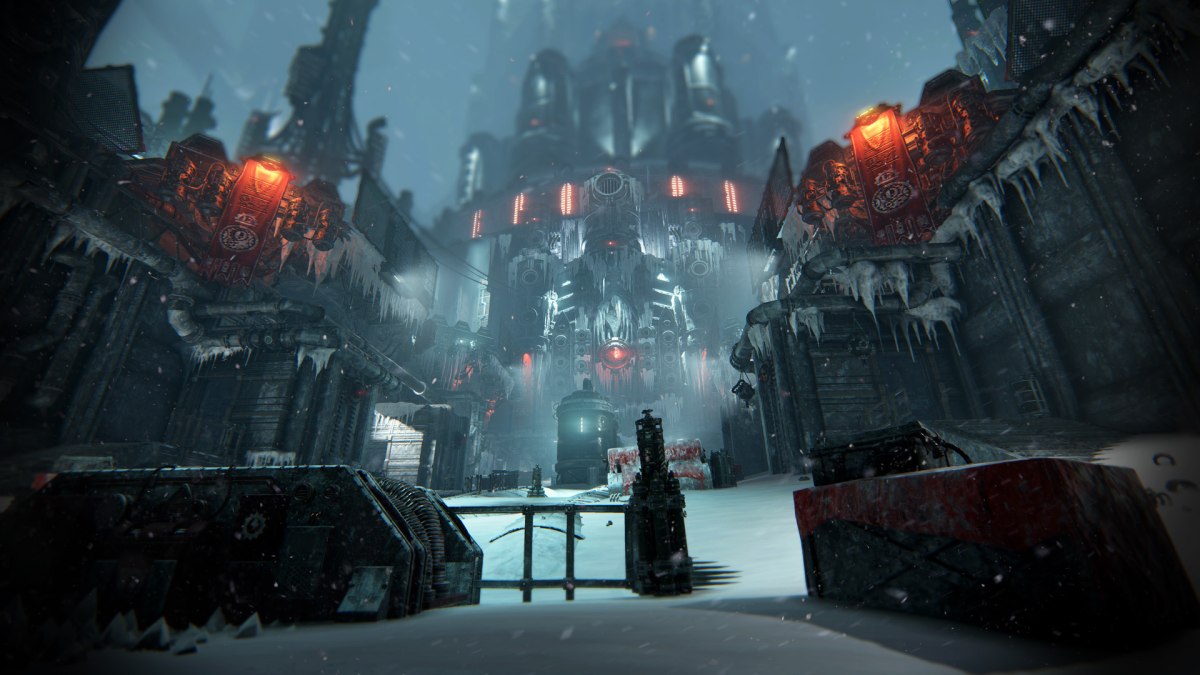With Katsura Hashino’s departure from P-Studio and Kazuhisa Wada becoming the new head of the division, we’re about to enter a new era for the Persona series after Persona 3, 4, and 5 revolutionized it. One of the changes that I hope P-Studio brings to Persona 6 (whenever it comes out) is a playable cast of adult characters, rather than yet another story about teenagers in high school going through high school troubles. Yes, today, we’re rehashing that old discourse.
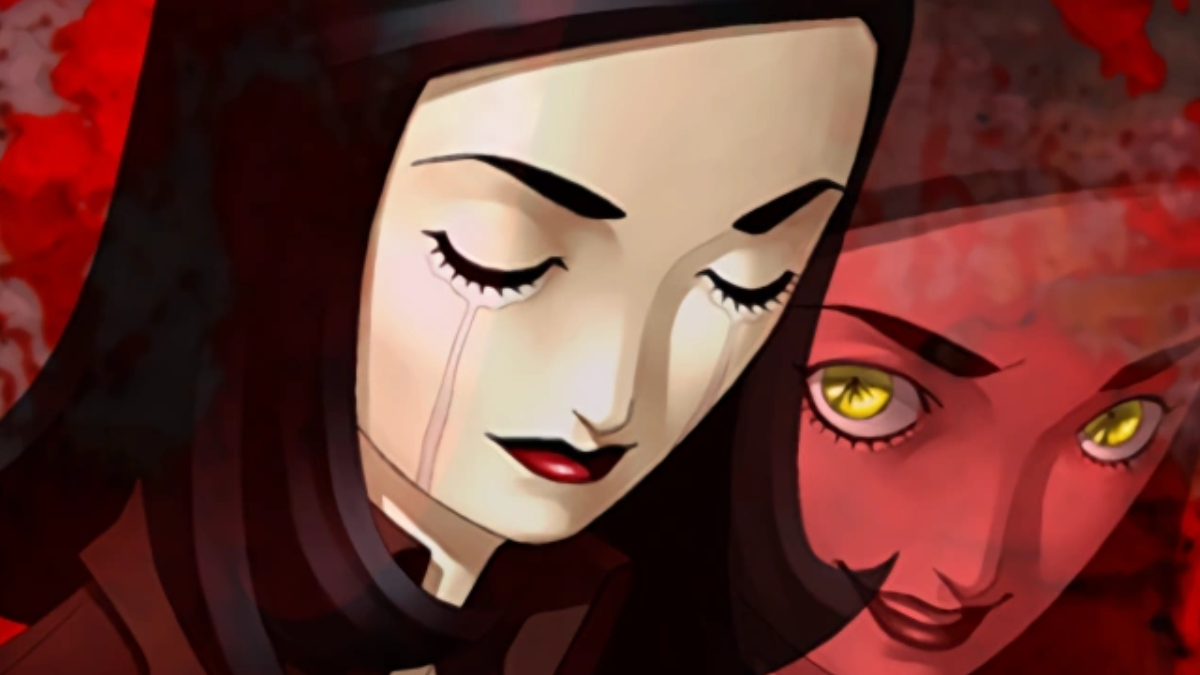
While you can play Persona games as standalone titles, some common themes and motifs (not to mention gameplay elements) tie the series together and give them all a sense of cohesion. Themes of friendship, self-discovery, and growth are present at the heart of most Persona games. Those are basically the ingredients for success in a shonen manga. So it stands to reason that the cast tends to skew young. But after three mainline titles in a row focusing on the teenage experience, adults should get a chance to reach out to the truth of who they really are under the Persona mask.
Adults? In a Persona game? Preposterous! The Persona games are a very uniquely teenager experience! That’s the kind of response some people have given to the idea of a Persona game about adults. But is it truly that strange? Before we continue, I would like to note that “someone 19 or older” is an adult in the context of this entire article. While the Persona series has always had its share of hardcore fans, it didn’t blow up and become the global juggernaut it is today until the success of Persona 3. Previous games in the series, such as Persona 2, have never shied away from playable adult characters. The problem is that the first two games (from Team Maniax) are fundamentally different when it comes to how characters get their Personas. Because of that, it’s hard to do a one-to-one comparison.
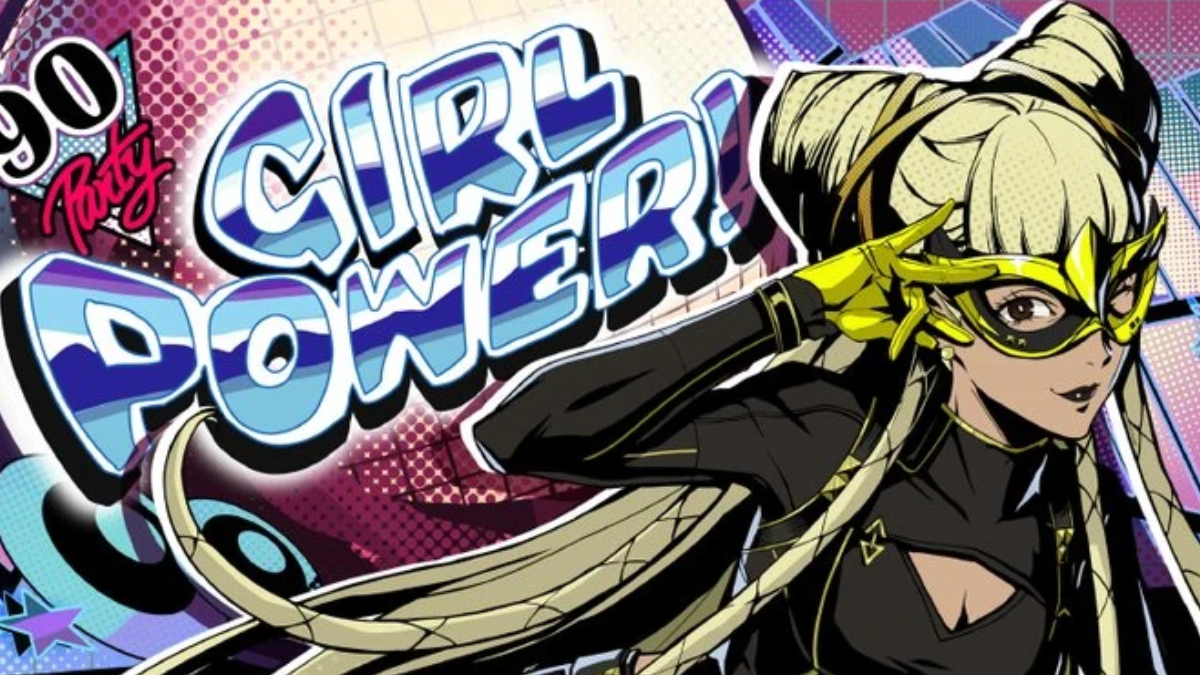
Fortunately, the newer entries seem to be experimenting with older playable characters. In Persona 5 Strikers, Zenkichi Hasegawa joins the party as Wolf. He is a police inspector who’s probably in his forties or so. This is even more of a spin-off than Strikers was, but in The Phantom X, there’s Kayo Tomiyama, who moonlights as Okyann in the Metaverse. When she’s not serving as the player’s Navigator in battle, she’s a housewife in her mid-forties. To be fair, she looks much younger than her actual age when she’s in the Metaverse.
From what I can see online, there are two main camps to this discourse: those who believe that Persona games cannot be about people older than teenagers, and those who want to play as adults in the next entry. There’s always the chance that Persona 6 will do what Persona 3 did and change the overarching rules for how someone can awaken to a Persona. That would be an interesting thing to see. But even if it doesn’t, there’s nothing about Persona that inherently tells a teenager story. It’s only the framing device of “transfer student” that makes it feel that way.
When thinking of stories that can only work when the characters are a certain age, the first one I think of is Puella Magi Madoka Magica. A lot of the story beats feel like they would be unbelievable if the characters are older. Sayaka is the worst offender of this. Aside from her black-and-white worldview and obsession with justice (very Persona 5 of her), her general naivete about love led to her making a stupid decision with major consequences. Apart from Sayaka, Madoka in Homura’s original timeline decided to become a magical girl to save a cat. These are choices that are only believable when the characters are twelve years old. The narrative focuses on the girl experience.
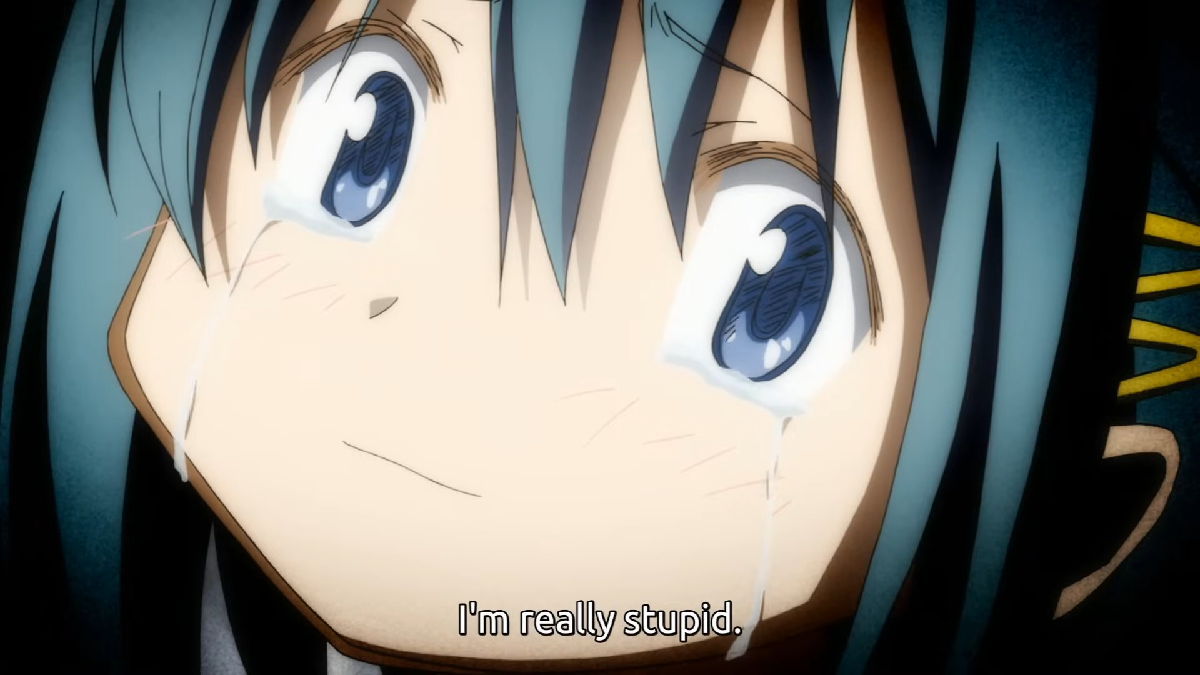
Now, let’s go back to Persona. None of the major story beats really focus on something that is teenage-specific. There are some interpersonal conflicts that arise from general immaturity—think Junpei’s jealousy early on in Persona 3, Yosuke bringing weapons to the food court in Persona 4, and the Ryuji and Morgana argument in Persona 5. But other than that, the stories aren’t as centered on the teenager experience as Madoka Magica was for girls.
Let’s say that Persona 6 doesn’t change anything in how characters can awaken to their Persona. The new method of awakening to your Persona in 4 and 5 is, in simple terms, to come clean to yourself about your true feelings. It’s a bit naive to think that adults magically figure themselves out as soon as they hit 19 years old. In the case of Futaba, she had to overcome a past trauma before she awakened her Persona. Again, this is not unique to teenagers. In Persona 2, Baofu’s past trauma and guilt are major parts of his narrative arc and characterization. Zenkichi and Kayo prove that the newer versions of Personas can also manifest in adults. So, please, Atlus, give us more!
Without sacrificing realism, there are only so many stories and themes to explore with a teenager. But adults can have such a wealth of experiences, both negative and positive, and complexities just by merit of living a few more years and going through more stuff. Zenkichi was a single, widowed dad who was losing touch with his beloved daughter thanks to his workaholic tendencies. That’s so interesting precisely because it was out of the expected norm from Persona.
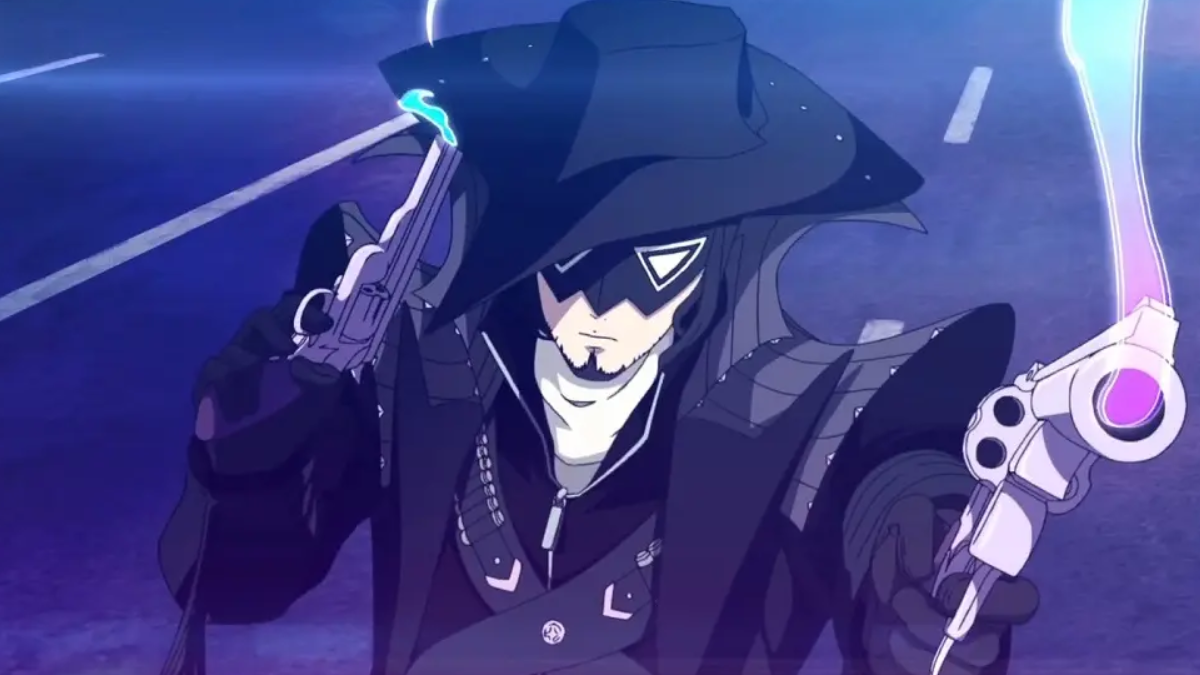
Something I didn’t consider until discussing this with a friend is how the Persona writers can get away with lots of things when the characters are teenagers and not adults. It’s pretty easy to accept a teenager being self-contradictory. How many teens are there on Twitter who love Black Butler but take offense to “age difference” ships? Like, my friend, you are reading the age difference manga. This is the most obvious in Persona 5, which had one of the messiest stories I’ve seen from an Atlus game. Despite the narrative framing them as these great heroes, the Phantom Thieves have a very childish and reactionary sense of justice. The game never seems to acknowledge this.
With the exception of Madarame, all of their targets are people others chose for them, or people they need to target because otherwise they’re in danger. Kamoshida is another exception I’m willing to overlook because he’s the first one and the inciting incident. The marketing for the game sold the Phantom Thieves like they’re in control of their own destiny. Yet, never at any point did it feel like they had any real agency over their decisions.
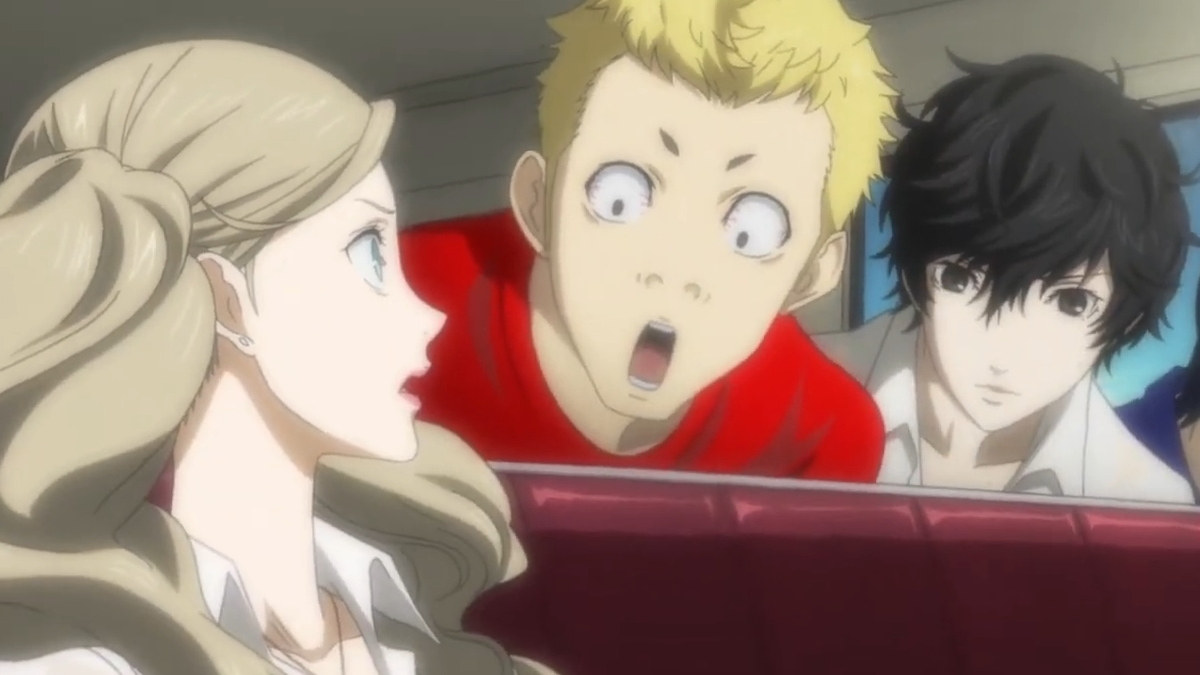
A character making dumb choices does not make for bad writing. Rather, it’s the lack of consistency in themes and tone that do. Ryuji repeatedly blowing the Phantom Thieves’ cover in public with his loud voice and impulsive personality doesn’t mean that the writers are incompetent. It’s a character flaw. What was bad was when the Phantom Thieves thought Ryuji died after Shido’s Palace. After he reveals himself perfectly alive albeit shaken up, the Phantom Thieves beat him up as a “funny” moment. It felt out of character at best. At worst, it’s insensitive considering Ryuji’s history of physical abuse from his dad and Kamoshida, on top the fact someone did actually die in that Palace. Though you can argue that only Joker’s aware of Ryuji’s past, the writers could have simply chosen to not include this, or turn it into a more emotional reunion instead.
The game clearly wants us to take Kamoshida’s sexual abuse and pedophilia seriously. It opens with an attempted suicide, after all. But then, after his arc, Atlus starts using the girls for fanservice. Even during it, Ann expressed discomfort about her Panther catsuit. This sort of “Eek, I’m in a revealing outfit but I don’t like it!” gag is almost always to titillate. After Kamoshida, we had: Ryuji looking up Ann’s skirt while she’s sleeping, the girls’ underwear being visible due to sweat, a close-up of the girls’ necks and legs during the summer festival, and more. I’m not arguing for Persona 5 to remain as grim as it was in the beginning. I’m saying there are ways to be funny without objectifying girls, Hashino, especially when the opening act of the game was about how bad it is to sexualize minors.
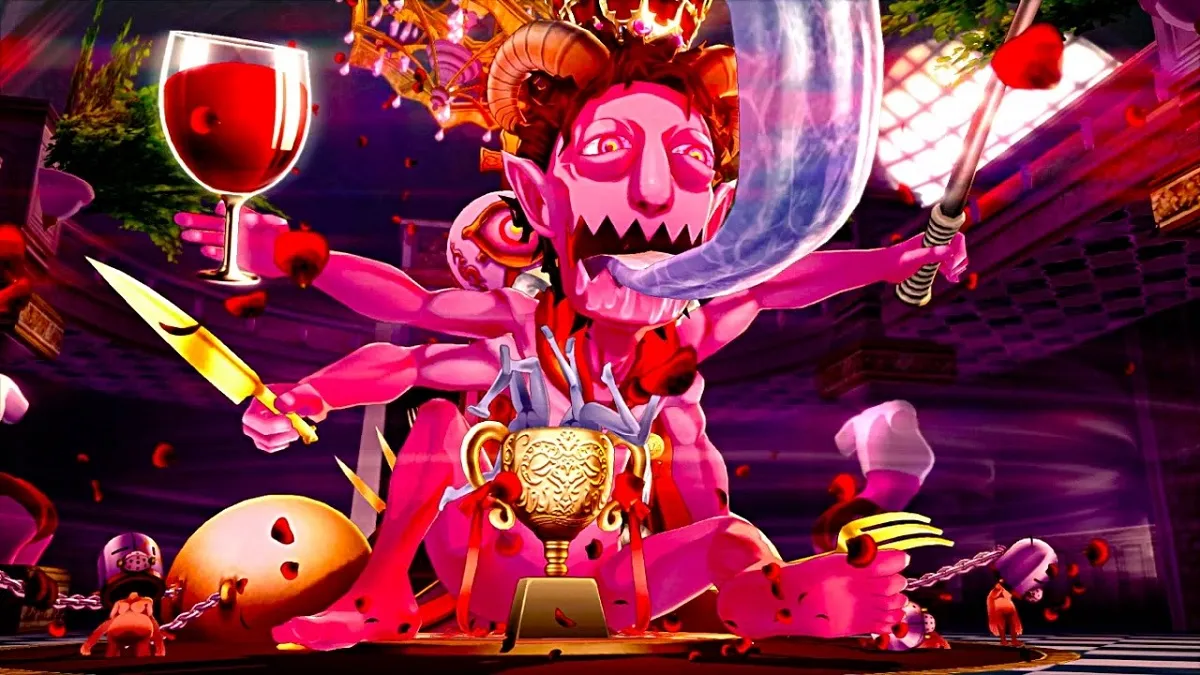
As a disclaimer, I don’t care about fictional characters’ ages. But it’s hard not to side-eye Persona 5 when the game opened with Kamoshida being an unrepentant and disgusting pedophile, only for the rest of the game to use the teenage girls as eye candy. This isn’t even a point of equality where I’m trying to demand the guys also be sweaty or naked. The dissonance between the themes and narrative framing was just ridiculous, and a microcosm of a lot of Persona 5‘s issues as a story.
Again, while adults are fully capable of being hypocrites, it’s much more common for teens to say something and then do something completely different. Ryuji calling out Kamoshida for being gross only to turn around and be gross himself is a pretty realistic reaction…for a “dumb” teenager. It’s easy to forgive him for this due to his age, whereas if Ryuji was older, people might not let him off the hook with a “boys will be boys” mentality.
I’ve seen people defend some aspects of Persona 4 and 5’s writing as cultural differences between the west and Japan. For example, if you take into consideration Japan’s family register system, it’s very easy to understand why Akechi’s reveal of his orphan status was framed like a big deal. But these inconsistencies in tone, values, and themes are not a cultural difference. It’s just bad writing. Persona 4 suffered from something similar, though not to the degree of 5. Could an older cast of characters guarantee better writing? Well, no. But it can certainly place more pressure and expectations on the writers when it comes to narrative beats and characterization.
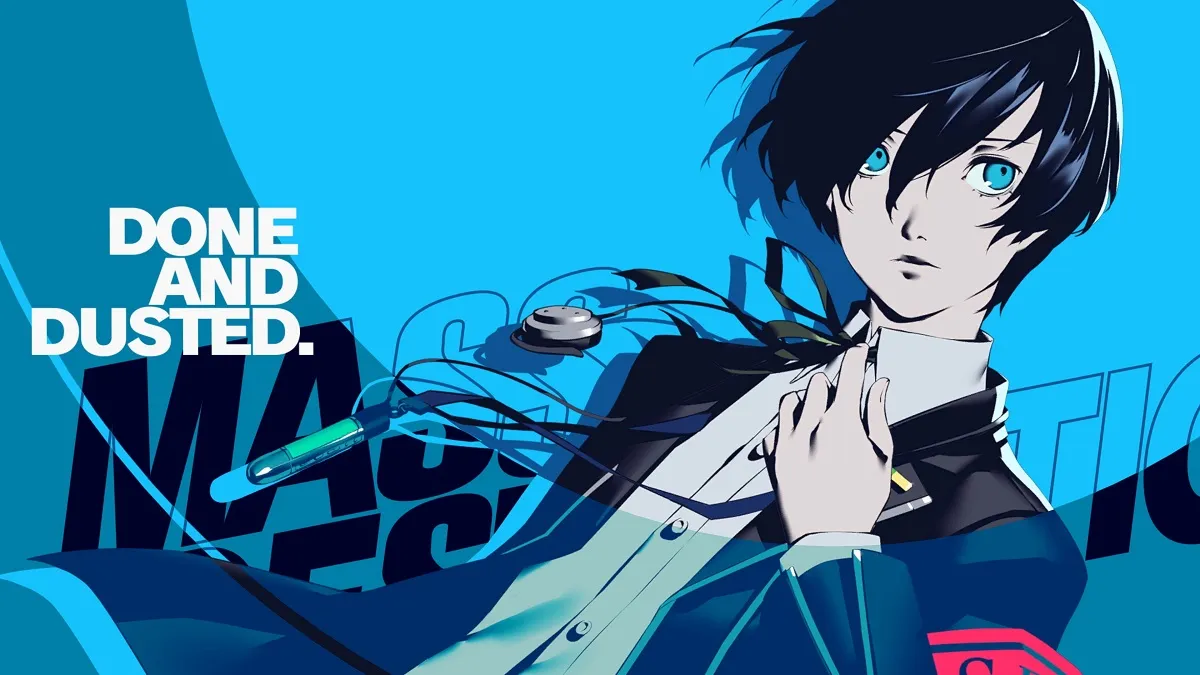
The unfortunate reality is that games don’t just depend on developers and programmers. Investors are a major part of the process as well. Like it or not, the Persona brand has become associated with a certain narrative and people have certain expectations. Much like how you can always expect a mainline Pokemon game to follow a young child going on their first adventure to collect gym badges, Persona games have become stories about a transfer student who moves to a new place, meets new friends, and finds themself wrapped up in some murder plot or other. As I mentioned earlier, some people are firm in their belief that Persona is a series about teenagers. Maybe those people won’t even bother buying a Persona game if it differs too much from that premise, and that “what if” might be enough for investors to shut down a potential adult-oriented narrative.
Atlus has not given us any real information on Persona 6 yet. For all we know, the next game might really feature a cast of people in their early twenties who are adults, ready to take on societal injustices while balancing their career and/or university. I sincerely hope we can finally graduate from high school and explore some more varied or nuanced narratives again.
